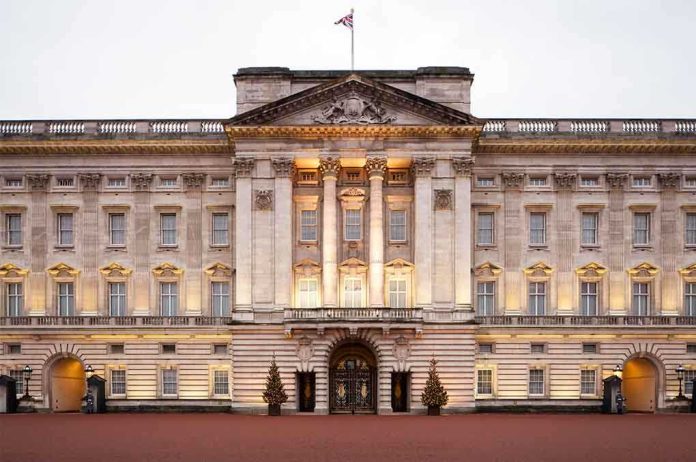
When a king strips his own brother of royal titles and evicts him from the family seat, the walls of tradition tremble—and the world watches for what comes next.
Story Highlights
- King Charles III has formally stripped Prince Andrew of his royal titles and demanded his exit from Royal Lodge
- This marks the first time in modern history a senior royal has lost both status and residence due to scandal
- The move reflects the monarchy’s urgent need to modernize and respond to public outrage
- Prince Andrew will now be known as Andrew Mountbatten Windsor, signaling a dramatic break from royal privilege
Monarch’s Judgment Sends Shockwaves Through Tradition
The announcement from Buckingham Palace landed like a thunderclap: King Charles III, less than three years into his reign, has exercised his sovereign prerogative to strip Prince Andrew of all royal titles and require him to surrender the lease on Royal Lodge, his longtime sanctuary. This is not just a family squabble aired in public—it is the monarchy’s most forceful response to reputational crisis in living memory. The transformation of Prince Andrew into Andrew Mountbatten Windsor, a name shorn of grandeur, signals a watershed moment in the House of Windsor’s history and a warning to anyone who believes royal privilege is immune to consequence.
Andrew’s fall from grace did not happen overnight. Years of escalating controversy followed his associations with Jeffrey Epstein and allegations of sexual misconduct, culminating in a U.S. civil lawsuit settlement in 2022. Public trust eroded as media scrutiny intensified. King Charles, ascending the throne amid these storm clouds, faced a dilemma that no modern monarch has tackled so directly: how to salvage the institution’s integrity while a scandal threatened to engulf it. By demanding Andrew vacate Royal Lodge, the king has made it clear that not even proximity to the crown guarantees protection from accountability.
Royal Lodge Eviction: Symbol of Monarchy’s New Era
Royal Lodge, a stately residence in Windsor Great Park, has been more than just a home for Prince Andrew; it has been a symbol of enduring royal entitlement. Requiring Andrew to surrender the property is a line drawn in the sand. No monarch since the abdication crisis of Edward VIII has so dramatically reordered the privileges of a senior royal. The message is unmistakable: the British monarchy is no longer content to shield its own at the expense of public trust. The Royal Lodge, once a bastion of tradition, now becomes the locus of reform—a clear sign that the monarchy will not hesitate to sever ties with those who jeopardize its reputation.
The ramifications extend beyond Andrew’s personal humiliation. The Royal Family faces internal tensions as the public questions who might be next, and how far King Charles is willing to go to modernize the institution. Advisors and palace officials are tasked with steering the transition, all while media outlets dissect every nuance for clues about deeper divisions within the royal ranks. The British public, long accustomed to royal spectacle, now witnesses a rare exercise of monarchical discipline—one that could set a precedent for future crises.
Modernization and Risk Management Define the New Royal Playbook
Stripping Andrew of his titles and residence is not simply a punitive act; it is a strategic maneuver rooted in the monarchy’s need to adapt and survive. King Charles III is motivated by a recognition that the royal brand must be protected at all costs. The move has drawn both praise and skepticism from royal commentators, who describe it as “unprecedented” and a clear signal of intent to safeguard the crown’s reputation. Historians point out the rarity of such actions, noting that the monarchy’s ability to self-regulate may be the key to its continued relevance in an era of public scrutiny and demand for transparency.
While some experts warn that internal family strife could simmer beneath the surface, others argue that decisive action is necessary for the monarchy’s survival. The economic consequences, including the management of royal properties, and the social impact—shifting perceptions of royal accountability—will play out over years. The political debate over the monarchy’s role and funding may intensify. What remains certain is that the precedent set by King Charles will echo throughout royal circles and may influence how other aristocratic institutions respond to scandal.
Sources:
CBS News: What led to King Charles’ unprecedented move to strip Prince Andrew of his royal titles?









